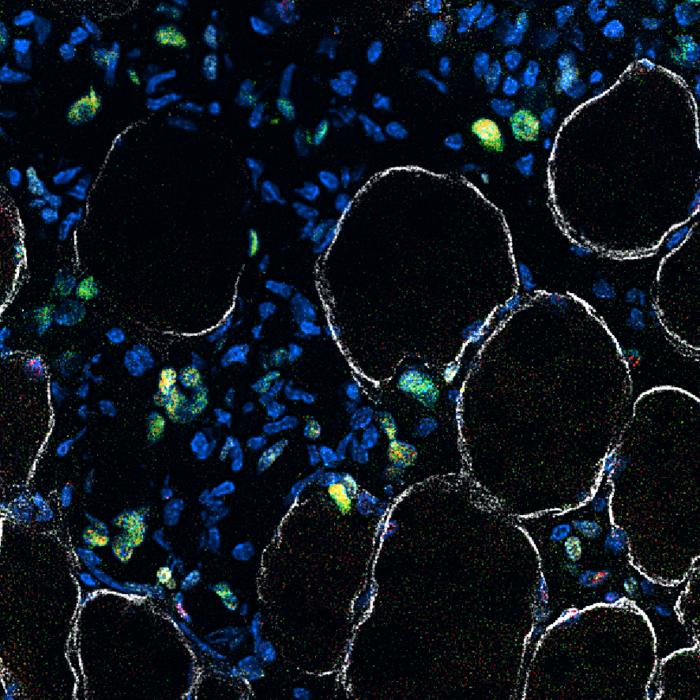A common molecule found in the body could be targeted to turn aged muscle cells to become young again, helping prevent frailty in older people, a new study suggests.
The populations of developed countries are getting older, leading to higher rates of associated frailty and debilitation among their people.
Gradual muscle loss in these populations is accelerated by the poor capacity of muscle tissues in older people to repair injury, especially after falls or surgeries.
This leads to a condition called sarcopenia, or low muscle mass, in older people, making them prone to even more frailty and movement problems.
Previous studies have shown that muscle stem cells play a key role in repairing such tissue damage, but they become dysfunctional with age.
Researchers have been trying to understand how aged stem cells differ from young ones and to find ways to reverse these changes.

A new study, published in the journal Cell Stem Cell, reveals that aged mice treated with a naturally occurring molecule in the body called Prostaglandin E2 (PGE2) show improved regeneration and strength of aged muscle.
Scientists also found that the PGE2 molecule works by counteracting stem cell ageing.
In the study, researchers examined the effects of PGE2 and its related molecule EP4 on the body.
Previous research has shown that during muscle injury, PGE2 triggers muscle stem cells to regenerate the muscles of young mice.
In aged mice, scientists found that the EP4 production in muscle stem cells was either lacking, or reduced by half compared to levels found in young stem cells.
“PGE2 is an alarm clock to wake up the stem cells and repair the damage. Aging essentially reduces the volume of the alarm and the stem cells have also put on ear plugs,” said study author Yu Xin Wang.
The new research has found a way to reset the intensity of this cellular alarm clock.

When scientists gave a stable form of PGE2 to aged mice after muscle injury and in conjunction with exercise, they found that the treated mice gained more muscle mass and were stronger compared to untreated ones.
“What amazes me most is that a single dose of treatment is sufficient to restore muscle stem cell function, and that the benefit lasts far beyond the duration of the drug,” Dr Wang said.
“In addition to making new muscle, the stem cells stay in the tissue, where they sustain the effect of the PGE2 and instil the muscle with further capacity to regenerate,” he said.
The study found that PGE2 treatment can restore stem cell function and reverse many of the age-related changes in mice muscles.
“PGE2 has been implicated in the regenerative process and signalling for the intestine, liver, and several other tissues, potentially opening up an approach that could restore the renewing capacity of other aged tissues,” Dr Wang said.
“We have discovered that the PGE2 induces rejuvenation of aged muscle stem cells, which leads to functional improvements in muscle repair and strength,” scientists concluded.



